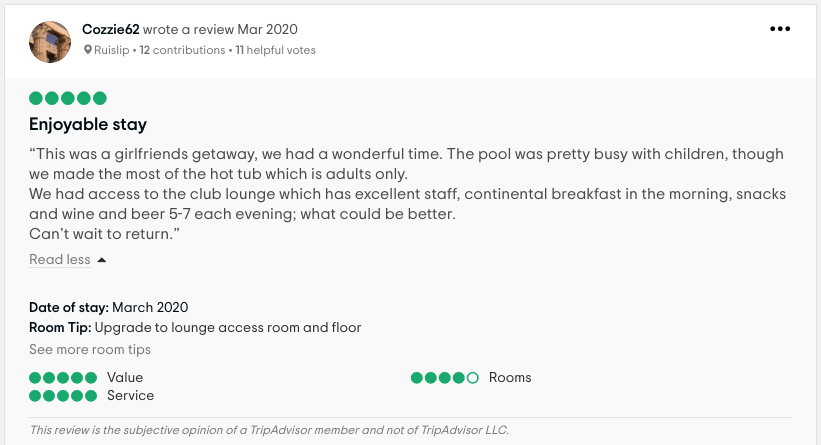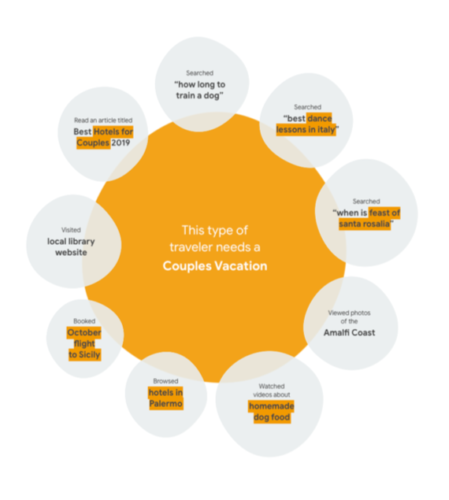Meeting and Understanding Travelers’ Needs to Generate More Bookings

For a few months, travelers have been in the “dreaming” phase regarding their travel plans, searching through different options and opportunities for their next getaway. Hoteliers are tasked with maintaining their online presence to attract travelers, and the question to answer is: what is the best way to attract guests and bring in bookings? There are numerous strategies a hotelier can use to try and capture the attention of a guest. Making eye-catching social posts and having a beautiful website with an intuitive booking process is a positive start. However, in order to get travelers started on the process, it’s imperative to examine the needs of the traveler. What are they, and how do they influence booking decisions?
Google published an article that dives into the travelers’ mindset when deciding how and when to take their next vacation, polling over 7,000 users about their travel browsing habits. Globally, 17% of users are inspired to look for places to visit because they regularly think about trips they want to take; 16% look because they feel due for a vacation, and 16% already know when and where they want to go, and have been dreaming of visiting such a location for a while. At this inspirational phase of browsing, guests begin to narrow down choices by their individual needs. Each person’s needs may be emotional or functional – like needing a hotel with open space to relax versus needing somewhere pet-friendly to stay. Whether a hotel meets those needs will determine whether or not a guest takes the next step. When needs are not met, even if a hotel’s rooms are offered at an incredibly affordable rate, research shows that a booking is less likely. Google’s survey revealed that 47% of guests decided against booking because their needs weren’t met – nearly half, compared to just 27% that admitted not booking due to price.
The article continues, asserting that “needs-based bookings are more valuable than price-based ones,” as when more individual needs are met, varied industries benefit from a lift in revenue. Hotel marketers can use this information to identify guests’ needs are so they can develop targeted products or travel deals that help attract and meet those needs. If you’re able to meet customers at the starting line, then you’ll be able to build stronger consumer relationships, leading to increased customer loyalty. This leaves the task of identifying those needs, and there are a few different ways to approach this as a hotel marketer.
Tracking Your Messaging

With any piece of marketing you send out to your potential guests, analytics should be available in some way. For social media posts, sites like Facebook, Twitter, or Instagram will provide insight on who’s looking at your post. In Facebook’s case, you can boost the marketing of a post to specific audiences to help you reach exactly who you’re looking for. Your email marketing should track who clicks which link, allowing you to gather valuable data on what your audience is attracted to from your messaging.
Closely examining the way potential guests interact with your marketing materials provides valuable information to you about their interests, which helps to fill in a better idea about their needs. If your hotel sends a mass marketing email about upcoming events your hotel is taking part in, you can analyze the hot spots – areas where users click the most – and use that information to better understand what those potential guests may be looking for when they’re seeking a respite from their everyday life. If they click on an advertisement for a work conference, you can infer the guest might need a secure WiFi connection or a business center to better enjoy their stay. If they’re attracted to a large gardening event, then they might need a large outdoor space to relax. Even the preference of double beds vs. a king bed can give you insight into a guests’ needs during their stay. Understanding these connections can help to shape and refine your marketing strategy.
Analyzing Search Keywords
Sending mass marketing communications is a useful strategy, however, to understand what to send in the first place, you’ll need to discover where your audience’s interests lie. Every user online has a digital footprint, and analytics connected to your website can help you find out how visitors arrived at your page. The vice president of Celebrity Cruises said that they “use search to help prioritize [their] audience groups,” as they’re able to better test what marketing is successful faster than when using other channels. Through keyword analysis, they’re able to do A/B testing – a method where two similar versions of the same message are sent out, typically with one element changed to aim the messaging at a different audience.
Parsing out the difference in underlying inspiration between the search “Vacation in Alaska” and “vacation cruise” can make the difference for a company like Celebrity Cruises when it comes to developing smarter, targeted marketing to help capture the attention of guests who would have a more valuable experience booking with them. You can even turn to your guest reviews to get a glimpse at whether or not those needs were met, and for additional insight for what guests may be looking for from your hotel.

Above is a positive review from a property that explicitly mentions the pool, hot tub, and club lounge that the guest enjoyed for their girlfriends’ getaway weekend. This tells the hotelier that their needs – a space to relax with their friends – was more than met by the amenities that hotel provides. For TMG clients, it’s easy to glean data from reviews like this. This review was tagged as “Pool” on the TMG OneView® dashboard, and as such it was filed under that tag and labeled “positive” under the sentiment analysis section. From there, hoteliers can review the sentiment their guests are leaving to narrow down specific needs that were met or unmet.
Negative sentiments can be analyzed through this system, as well, such as this negative “pool” sentiment from the same hotel below.

Here, the guest was dissatisfied with the available amenities alongside the pool and spa – the lack of robes kept them from relaxing. This serves as a tip for the hotelier for the future, whether that means picking images more carefully to prevent using ones that include robes, or being more clear about what offers include.
Utilizing Machine Learning
 Data analysis is not quick work – sifting through keywords and trying to draw connections to your potential consumer base can take a lot of valuable time that most hoteliers simply don’t have. Google promotes the use of machine learning to make this process easier. Through Google Analytics, machine learning reviews anonymized data points in real time and draws connections. Depending on what collection of search terms the machine finds, it can determine what type of vacation a traveler needs. When hoteliers can properly identify those needs, a comprehensive strategy can be built to gear your marketing strategy at the most valuable audience.
Data analysis is not quick work – sifting through keywords and trying to draw connections to your potential consumer base can take a lot of valuable time that most hoteliers simply don’t have. Google promotes the use of machine learning to make this process easier. Through Google Analytics, machine learning reviews anonymized data points in real time and draws connections. Depending on what collection of search terms the machine finds, it can determine what type of vacation a traveler needs. When hoteliers can properly identify those needs, a comprehensive strategy can be built to gear your marketing strategy at the most valuable audience.
The first step for your hotel marketing should be determining who your audience is, and utilizing these strategies can help you quickly and efficiently narrow your focus. Guests want to book valuable experiences, and your hotel has a valuable experience to offer them – you just have to find the right guest at the right time.





0 Comments